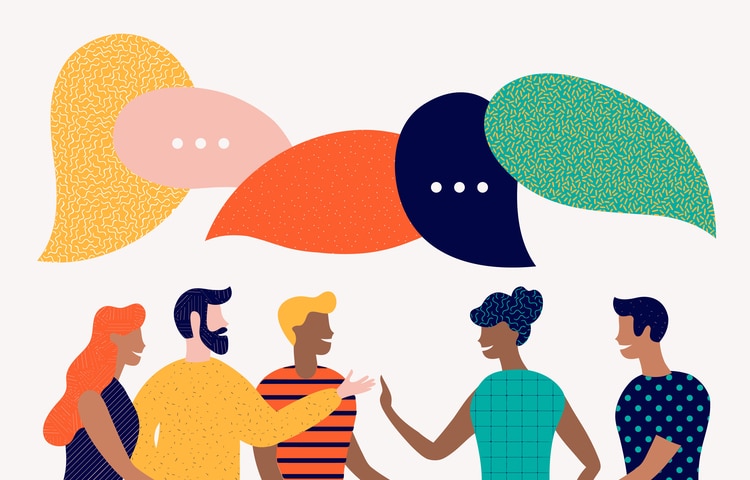From Berkeley’s position as the nation’s first sanctuary city to San Francisco’s recent high ranking on immigrant integration in the New American Economy’s Cities Index, the Bay Area (home to Magoosh HQ) has long been known as a beacon of inclusivity. When it comes to our attitudes towards language learners however, our promise of welcome sometimes falls short.
In my work teaching students English over the last 15 years, they’ve often revealed to me how quickly native English speakers can be to ridicule them.
As native English speakers, we often take for granted just how hard a language like English is to learn, and can be quick to shame those still gaining proficiency. But it doesn’t have to be this way.
The Trouble With English
The stakes are high for English language learners of all ages. About 20% of California public school students are English language learners, the highest proportion in the country. Universities use exams like the Test of English as a Foreign Language (TOEFL) to make admissions decisions, and various countries use the International English Testing Language System (IELTS) exam as a component of their immigration process.
Generally, my students work incredibly hard to improve their English skills, and research has shown that it takes seven years of full immersion and focused study to be able to function at a high level academically or professionally.
If you’re thinking that seems like a lot of effort, you’d be right. Just how hard can English be to learn?

Consider the case of “articles” (a, an, the), the most commonly-used English words. If you are a native English speaker, you use these words without thinking. But imagine having to explain the differences between:
- “I ate cake.”
- “I ate a cake.”
- “I ate the cake.”
Without “a,” it seems likely that you had a reasonable portion of cake, like a forkful or a slice. But with “a” it seems as though you had the whole cake! With “the,” it seems like you’re referring to a specific cake. It’s common to first use the article “a” when mentioning a noun and then in the very next sentence switch to the definite article “the” to talk about the very same noun:
“My dog got on the table and ate a whole cake. Fortunately, the cake was tiny.”
This switch occurs because the cake has been identified; we’re all thinking about the specific cake that the dog gobbled up!
The “Pronunciation Police” and Other Challenges for Language Learners

Though language errors can make for good laugh fodder, mistakes can have dire consequences for students who are being evaluated by professors, employers, or people they meet on the street.
It can be scary to communicate in another language. There’s the frustration of being inarticulate, the embarrassment of mispronunciation, and the feeling of being a perpetual outsider.
On the flipside, I have seen the joy my students experience when they can hold their own in English-speaking settings, gain the opportunity to participate in the communities in which they live, and get a chance to see how much they’ve learned about English, another culture, and themselves along the way.
If you’d like to provide constructive feedback to a language learner, but are unsure of how it will be received, ask first! Repeated exposure is the fastest way to improvement, and the more we encourage language learners to practice their new skills with us, free from judgment or ridicule, the better the odds they will gain the confidence needed to improve their abilities.
3 Ways We Can All Be More Welcoming Towards Language Learners
As an educator, I believe in the power of inclusive communities. And I also believe we can do more to support the English learners among us:
- Resist the urge to judge someone struggling to speak English.
English learners are going to make mistakes and can have difficulty conveying their intended meaning. This doesn’t mean the person does not care about learning English and it certainly doesn’t mean they are not trying. - Invite English language learners in your school or community to join you.
Language learners are often isolated, making it much harder to learn English. I always encourage my students to take a risk and socialize, but we as neighbors, classmates, and coworkers can also help by being the first to extend an invitation. - Try learning another language yourself!
Most importantly, I’d urge you to put yourself in the shoes of a language learner. Find out the most common, non-English language spoken in your neighborhood (there are over 100 in SF alone!), take a class, and use your fledgling skills as a (humbling) opportunity to connect with your neighbors.
Language learning is much more complex than memorizing words and grammar. Beyond a significant intellectual challenge, it requires embracing failure and rejection, making my language learning students some of the most courageous and resilient people I know.
We should all applaud language learners, not mock or discourage them. When cultures and communities not only genuinely welcome newcomers in their midst but also invite their full participation, all are humanized in the experience.
Tell us, how was your language learning experience? If you’d like some help, head over to our TOEFL or IELTS blog for free resources!

